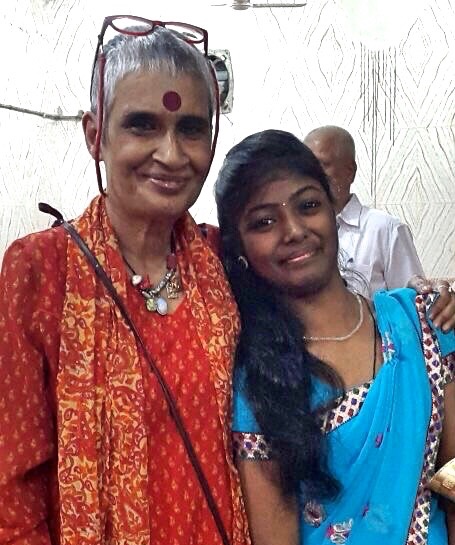![Not the India I want to live in]()
by anouradha bakshi | Apr 12, 2017 | Anou's Blog, Uncategorized

This picture is not the LOC. It is not an incarceration centre. It is not a prison. It is not a loony bin. This is my home! This the wall that separates us from our new neighbours!
I seek your indulgence today for writing a very personal post. I ask it in the name of all I have done and stood for and in the name of my mother who fought for the freedom of our beautiful country and was even willing to live as an old maid rather than give birth to a child in an enslaved land. God did give her one child: me. Kamala, my incredible and beautiful mother ensured that her only child take her first breath in an India that was free.
Today, sixty five years later I wonder if it was all worth it.
I have over the years felt saddened at many things but set them aside and never lost hope. I preferred taking the road less traveled and dog what I could to fulfil the dreams of all those who fought for our freedom. It was a fulfilling journey. There were hiccups but it was all par to the course and was taken as such. Ours is not a perfect world.
When things got bad, I drew strength from the home we built almost half a century ago where every wall is filled with memories of unconditional love and abundant gratitude. My home, now old and crumbling was my security blanket. I just needed to walk in and felt at peace.
But even that has been taken away from me.
The old house next door was brought down and in its place a new building was erected with many flats. Even that was OK. For many months the din and rattle made by the workers and their families was comforting. It was my India. The wailing of babies, the shouting, the laughter and even the fights, everything was welcome. But that too ended. Now we have neighbours!
I looked forward to meeting them as my generation welcomed neighbours and often bonded with them. But that was not to be.
I was woken from an afternoon sleep by strange jarring noises. I wet out and discovered workers on the wall that separates the house drilling holes and placing iron angles. When I asked what was happening I was told that this was for barbed wires, the lethal kind. My blood ran cold. This was the place where Utpal and my grandchild play in summer, the wall they climb when their ball gets stuck in the tree or on the parapet. This was the wall across which in the good old days when the old house existed we handed over a cup of sugar or some other silly item the neighbour needed, the wall where we stood and simply exchanged a greeting.
The idea of looking at barbed wire was preposterous and filled me with sadness and rage and total incomprehension. What had we become? When had we lost all that was good and beautiful? When had we allowed the invisible barriers we had erected to become visible and so in the face. This wall is just between their house and my house. When did they and I become enemies.
I did try to reason with the young person who will now be my neighbour. But to no avail. The fear was so deeply instilled that no words could assuage them. Those fears were a reflection of the society we have become. It seems like no one knows what the cause is. That has got lost in translation.
The anger gave way to sadness and the sadness to the realisation that the barbed wire was here to stay and that it was for me to find a way of protecting myself and my children and grandchild from its ugly sight.
Today I will get some kind of shield placed in front. I will make sure it is bright and filled with colours. I will make sure that my little ones will be able to climb that wall and that tree and get at the ball they hit often purposely so that they can climb that tree and that wall.
I refuse to be greeted by barbed wires every morning!
Remember, I am the child of the mother who was willing to sacrifice motherhood at the alter of freedom.
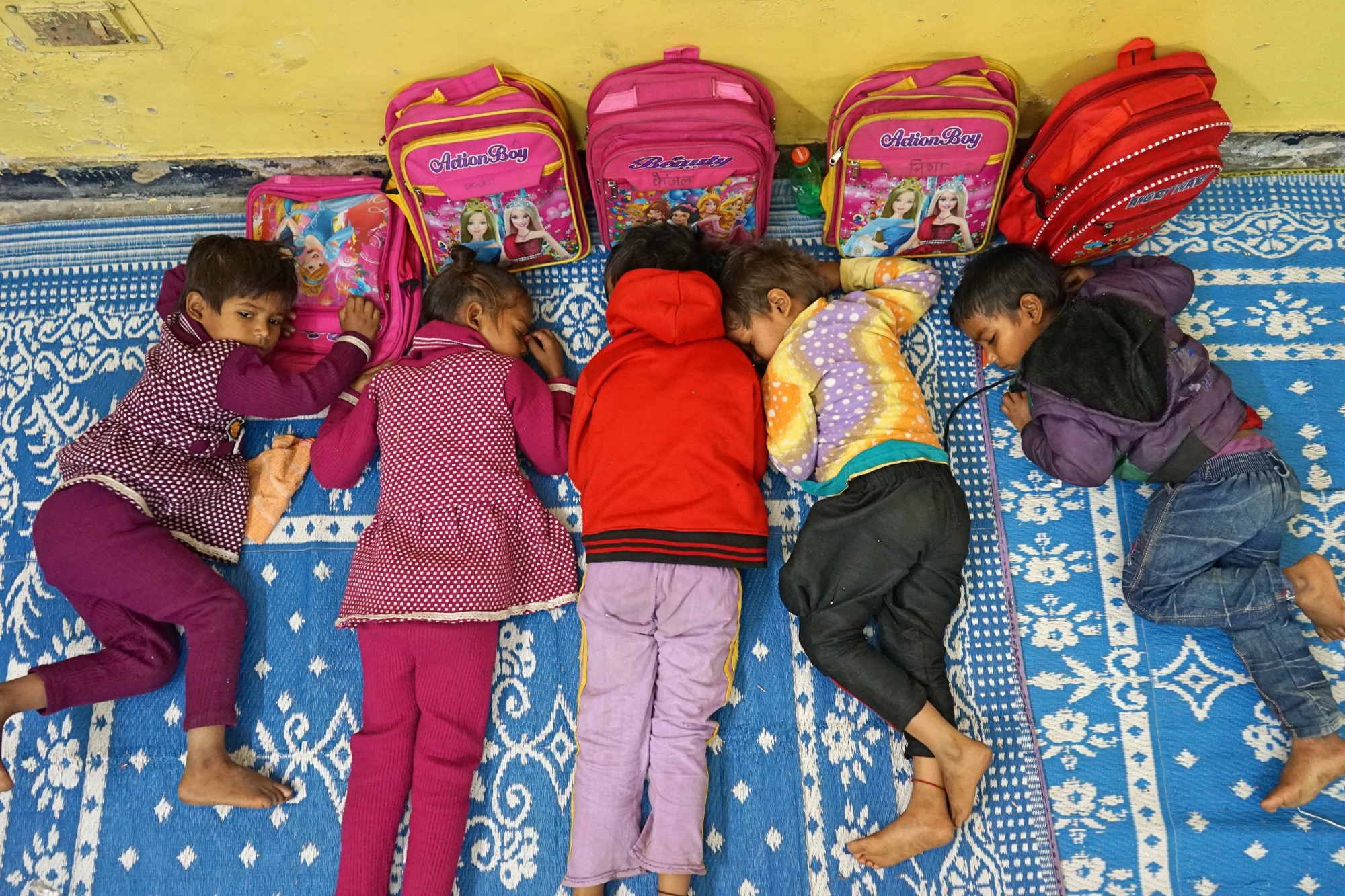
by anouradha bakshi | Apr 11, 2017 | Anou's Blog, Uncategorized
The Delhi government, while inviting applications for admissions to nursery, kindergarten and Class I, has imposed an upper age limit of 4, 5 and 6 years, respectively, on applicants. It is so easy to make ‘laws’ for children who have neither voice nor vote! And it is also so easy to find picture perfect justifications that seem logical. “We cannot admit a 12-year-old to Class I, the child needs to go to Class VIII only,” said an adviser to the education minister. Yes true. That is the ideal situation and we all wish we could ensure that ALL children in India could access Nursery at age 4! But sadly that is not the case so a law like this pushes millions out of school. The Education Act allows late entry upto class VI. True a 12 year old does not look ‘good’ in class I but can you take away her right to Education with one stroke of the pen.
One of the most cherished mission of Project Why has been to push back children to school and mainstream them. If we were to look back under this new prism a large percentage would have been pushed right back to the streets. Most if not all children out of school belong to what we call underprivileged homes, the other side of the fence! They do not have parents who are obsessed with getting their kid in a school. They do not have parents who know the value of education. Their parents are often illiterate and busy surviving from day to day. Their kid is not sent to pre and pre pre nursery schools. They often do not even keep track of their child’s age.
The parents we work with have to be pushed and reminded and egged on and often it is Project WHY that takes on the parental role till the moment when a crucial signature is needed. Now I guess we will have the added responsibility of keeping track of their ages.
Why is it that when decisions are taken about children, the ones on the other side of the fence are far too often forgotten.
We push them in; please don’t push them out!
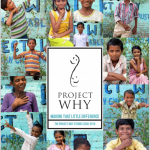
by anouradha bakshi | Apr 4, 2017 | Anou's Blog, Uncategorized
(Posting a series of success stories from the compilation The Project Why Stories 2000-2016)

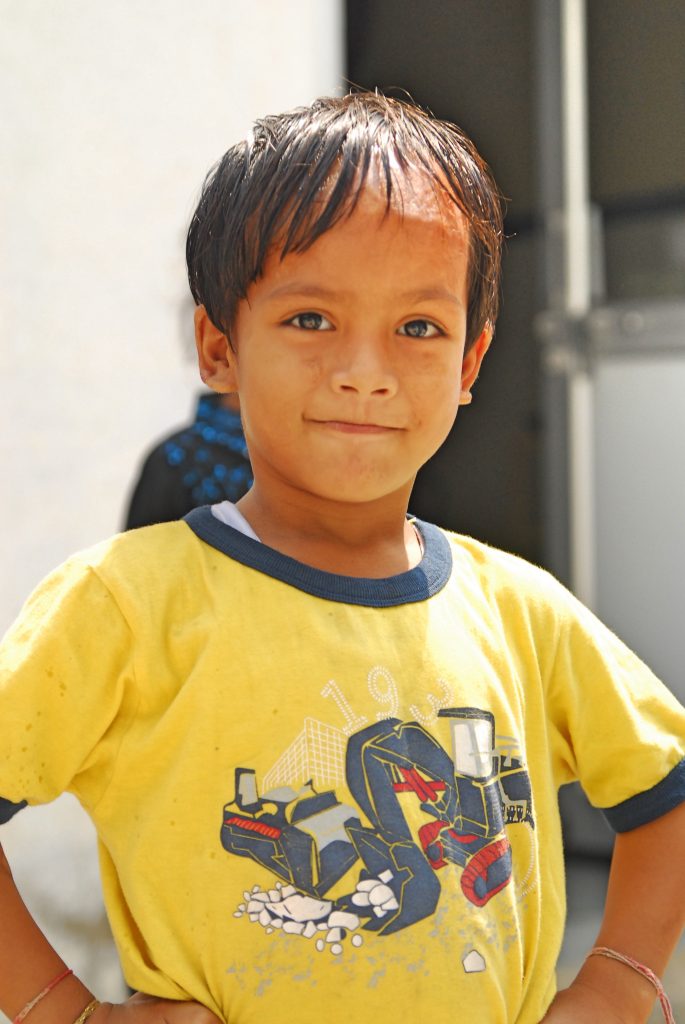 “All God’s angels come to us disguised” said James Russell Lowell. Utpal a.k.a Popples, and Outpal to all his friends is a force to reckon with, and a great lesson in survival. From a young age, he suffered third degree burns, double pneumonia, acute hepatitis A, and he never gave up.
“All God’s angels come to us disguised” said James Russell Lowell. Utpal a.k.a Popples, and Outpal to all his friends is a force to reckon with, and a great lesson in survival. From a young age, he suffered third degree burns, double pneumonia, acute hepatitis A, and he never gave up.
Utpal and his family moved into the tiny hovel adjacent to the Project WHY office, Giri Nagar in February 2003. In March 2003, the day after Holi, the ‘little boy next door’ had fallen in a boiling pot. The tiny boy sustained third-degree burns. The hospital gave up hope for the child’s survival when the discharge slip read – “Chances of survival – Nil”
Project WHY, along with the help of Sophie, a volunteer nurse from Paris assisted in nursing Utpal back to health. In time Utpals scars healed, and the frightening reality of his existence emerged – alcoholic parents, violence, abuse and no clear plan ahead. His family was completely dysfunctional and not a healthy environment for a child to grow.
Utpal negotiated both worlds the best he could. In 2003, Utpal started attending Project WHY in the day time and at night stayed with his parents. If the days were safe as both mother and son were under Project WHY’s care, conversely the nights were unpredictable – with nothing to eat at home and the possibility of ending up at the police station. He was an endearing child and wise beyond his years. Should anyone want to visit his home he would run ahead on his chubby legs to hide the alcohol bottles consumed by his mother at night, saying: “Mama was naughty.”
As Utpal’s mother’s alcoholism became unsafe for the child. Project WHY stepped up and sent the mother to rehab for women and Utpal in boarding school. At that time Utpal was just 4 years old. The separation was hard for Utpal, but as he accompanied Project WHY resource person to the rehab centre; he bid farewell to his mom with a smile as he knew he is safe but above all his mom is safe.
The intermittent years were not easy. Utpal learned to integrate into his new life at the Boarding school but would still come to his family on holidays, where the situation continued to worsen. Another incident compelled Project WHY to step in again – that of securing his legal guardianship, as it was feared that the family might take him out from boarding school and vanish. Project WHY’s founder, Anouradha Bakshi was made his legal guardian.
As the years rolled by, Utpal taught us many things but most of all the meaning of dignified acceptance in the wake of any adversity: from excruciating pain that third degree burns bring, to the abject humiliation you suffer when those you love the most let you down.
Looking back, Utpal was an ideal candidate for begging at a red light. Drunk parents, a nicely scalded body and yet an incredibly beautiful personality. With a little help from a network of friends who held on to the dream, of a better life for Utpal with Project WHY, made it possible for Utpal to survive and slowly transform his life. Each day goes by with making small memories which is captured in the little book called “dear Popples. with love Maam’ji” which will stand in for all the memories that Utpal may need as he grows into a man.
Today, Utpal is 15 years of age and attends grade X at the boarding school. He is making up for all the lost years and the wise little chap of yesteryear has given way to a delightful adolescent with all flaws that come with the teen-age. He has made friends with his scars that had made him the butt of a lot of bullying and riling. He’s now a natty lean young lad, a mean skater, who teaches skating to smaller children in his school, plays tennis and football. He’s extremely fond of ‘engineering’: he takes apart a multitude of objects and rebuilds them when he’s at his guardian’s home for the holidays. He loves music and dancing like any other 15-year-old waiting for his dreams to unfold.
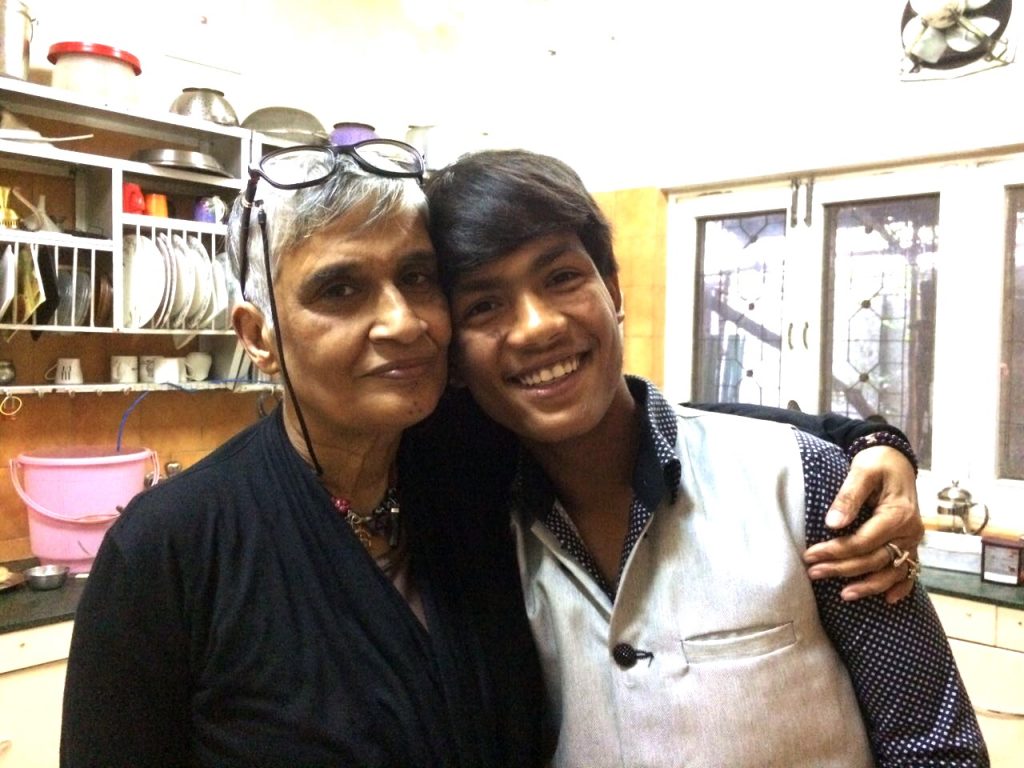
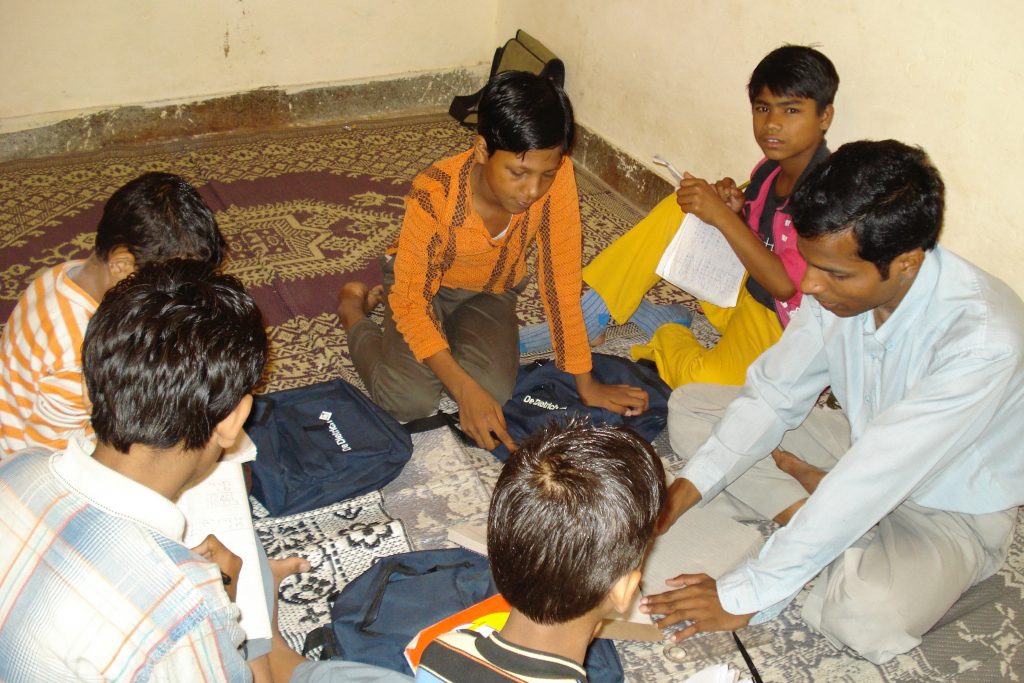
by anouradha bakshi | Mar 28, 2017 | Anou's Blog, Uncategorized
(Posting a series of success stories from the compilation The Project Why Stories 2000-2016)
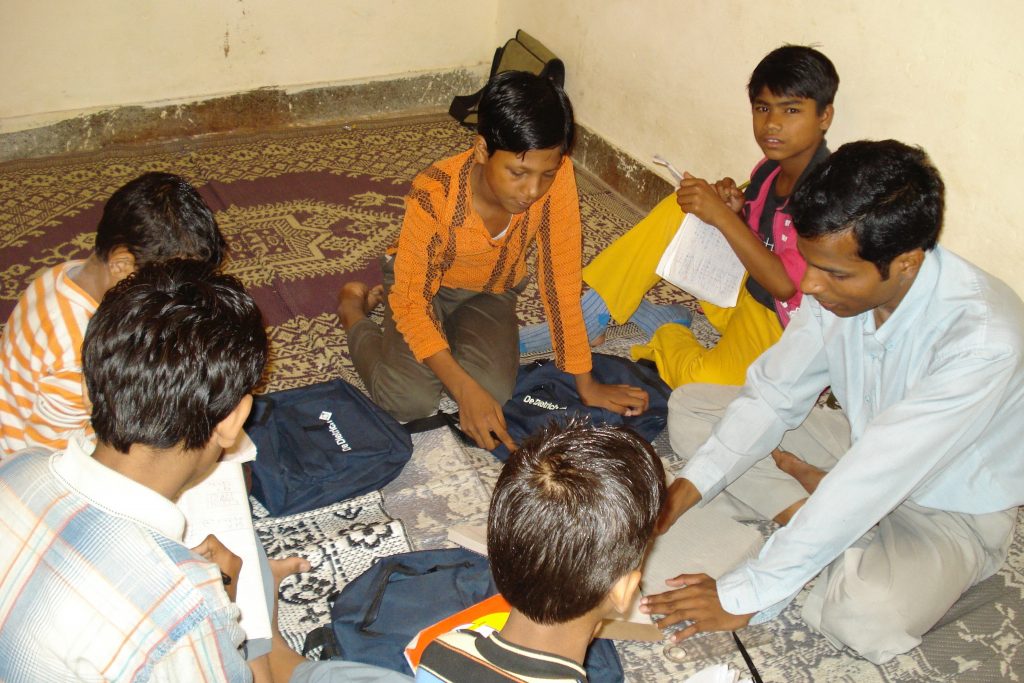

Chandan came to Project WHY in 2002 as an electrician. He lived in the community of Giri Nagar, where our original centre was based. The Project was in search of an electrician to do the odd repairs around the centre. Vinod Chaudhary, a friend of the Project WHY told us about his nephew, Chandan, who was willing to assist.
After a few months of such work, Chandan explained to us that he wanted to do more than just fixing lights; he wanted his career to progress and he wanted to leave a real impact on this world. As he was interested in teaching, and demonstrated raw talent in maths and science, Project WHY hired him as a Primary teacher in 2003. Chandan worked as a full-time teacher by day and an electrician by night in order to supplement his income.
Chandan was an excellent teacher but, having been brought up in a society rife with casteism, his behaviour raised issues for the Project. In India, no matter how educated one is, an upbringing in the rural village of Bihar renders the caste system a way of life, making it a difficult philosophy to eliminate.
India’s caste system is among the world’s oldest forms of surviving social stratification. The system divides Hindus into rigid hierarchical groups based on the occupation of the family into which one is born. Traditionally, the system bestowed privilege upon the upper castes whilst sanctioning the repression of the lower castes by privileged groups. Often criticized for being unjust and regressive, the system persists in many rural and urban cities.
As a non-discriminatory mission, Project WHY employs staff from all walks of India, regardless of community and caste. Unfortunately, people like Chandan were taught from a young age to avoid any group situation that involved both high and low class. Initially, we did not pay much attention to Chandan’s behaviour in the hope that he would naturally integrate into our way of thinking. He would occasionally avoid the Project’s group activities that involved groups from mixed castes, but otherwise did not pose a problem. However, in 2004, when our local tea seller lady Seema picked a fight with Chandan for having refused to drink her tea, the Project WHY team had to step in to calm the situation. Seema reported Chandan to a village elder that night and the ensuing violence between communities required intervention. We found ourselves using Chandan to explain to the community that violence was not the answer and that all issues could be resolved in time.
After working with Project WHY over time, seeing its progressive approach to hierarchy and understanding the value of each member of society, Chandan slowly changed his mindset and began accepting all castes equally. By welcoming him into a career that he believed to be above his reach, we taught him to do the same for others, and he now finds himself relaying the same message back to his village in Bihar.
In 2004, Chandan wanted to do more and learn more. He took extra classes with Project WHY’s resident mathematician, Naresh, in the hope of teaching secondary classes in the future. In 2005, he began teaching our Junior Secondary classes, but continued to teach electricals for those looking for careers in the field. It also transpired that he was a talented artist and the children enjoyed learning to draw under his guidance.
After eight successful years with the Project, Chandan, along with another teacher, Pravin, wanted to take the vision and concept of Project WHY and apply it to their own community of Bihar by creating a new NGO. In 2010, Chandan therefore created the “Deepjyoti Charitable Trust” which works in a similar way to Project WHY, but targets education and social mobility in his home state of Bihar. Chandan has replicated our concept, initially taking small groups of children into education, and going on to expand into an all-round support centre. Project WHY provided its expertise to the trust and acted as an adviser, as well as providing financial assistance for its first two years. We continue to maintain close relations with Chandan and his team, but the organisation is now able to stand on its own two feet. Chandan and his Pravin are now proud owners of an NGO that makes a genuine difference in Bihar and playing it forward!
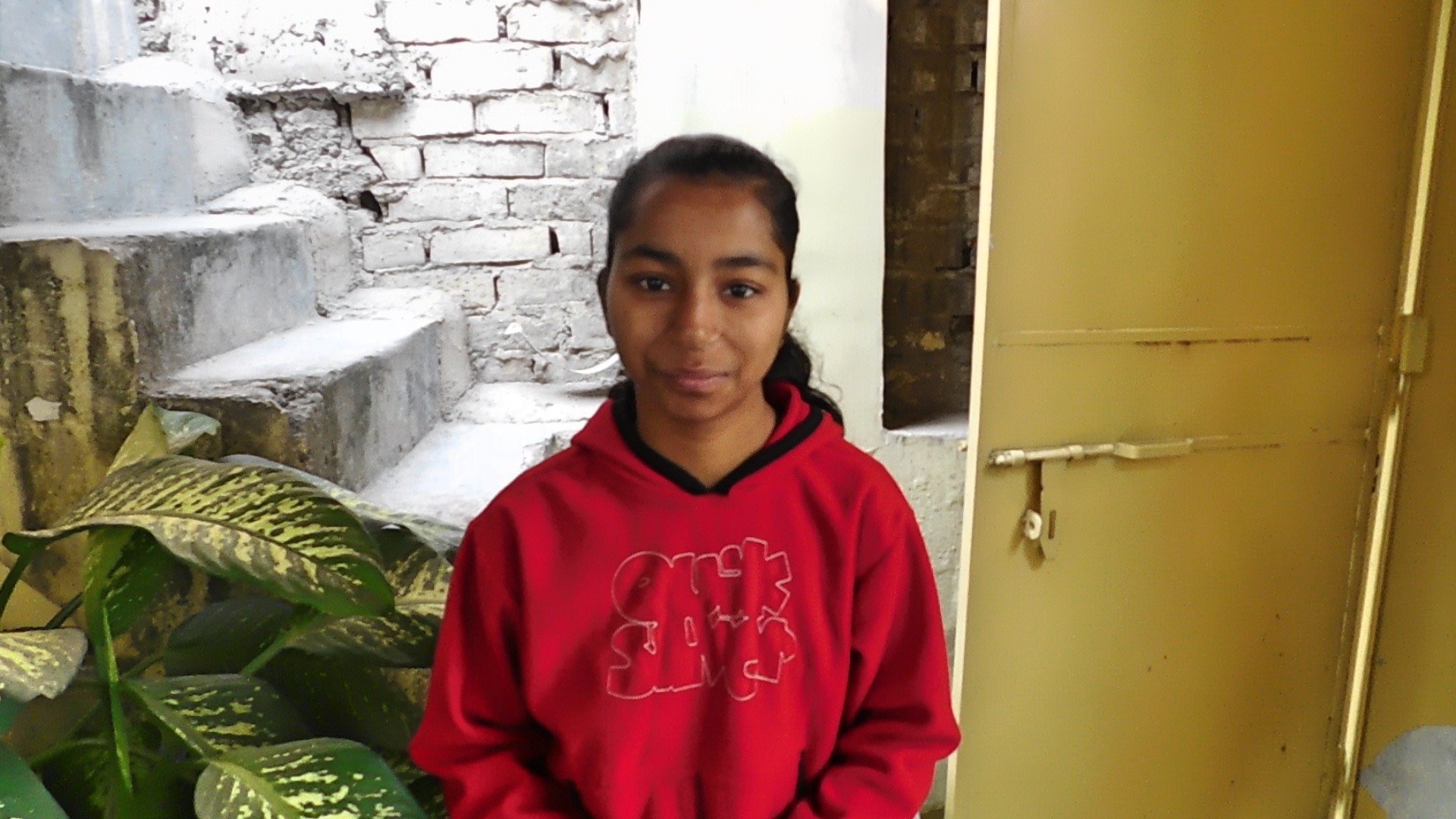
by anouradha bakshi | Mar 21, 2017 | Anou's Blog, Uncategorized
(Posting a series of success stories from the compilation The Project Why Stories 2000-2016)
When Babli first came to Project Why in 2004, she was a bright-eyed, feisty girl; what some Indians would call Bindaas, meaning carefree and confident. She loved books and seemed to always have a smile. It took Project WHY’s resource persons some time to realize that every breath she drew was an effort. Babli had a hole in her heart from birth and needed corrective surgery. Her family was unable to come up with the needed funds. They had simply accepted that she would not live long.
In India, little girls are sometimes considered dispensable, their hearts not worth mending. The Census of India 2011 demonstrates a decrease in the population ratio of female children (age group 0-6 years) of India compared to 2001. For every 1000 male children, there were now 914 female children, a drop from 945 – where are our girls? Investigations show that female infants experienced a significantly higher mortality rate than male infants in all major states.
Thanks to our wonderful friends, Project Why was able to raise the funds for Babli by 2005 and the operation was performed successfully. It was scary and painful for this innocent little girl, but Babli’s bindaas spirit saw her through it all.
After her recovery, Babli was expected back in school but, to everyone’s shock, it emerged that she would not be able to continue her education. Her mother, being the sole earning member of the family, didn’t have time to take Babli to school. She also needed her to take care of her younger sister. The father was busy playing cards, and it eventually fell to Babli to manage the father’s work cart that sold tobacco and biscuits.
One step forward and two steps back. The Project WHY resource persons soon found Babli sitting on the cart selling chewing tobacco, cigarettes and biscuits instead of being in school, and her little sister standing in the background. She told them about how her name had been struck off from the rolls of the school and why she was working. But Babli’s words, spoken when she had trouble breathing, still resonated: “I want to be a police,” she said, without hesitation, when asked about her dreams.
Project Why found the situation unacceptable, and took steps to change it. After a meeting with her parents and a visit to the nearby government school, Babli was back in school.
Today, thanks to a kind sponsor, Babli studies in Class 9 at English Medium Boarding School in New Delhi, where she often tops her class. True, she won’t become a ‘police’ as the aftermath of her surgery resulted in scoliosis, but she will shine. Her education, which had fallen into peril this year because of a major donor backing out, will continue thanks to another kindhearted donor who has stepped in to fill the gap. This is Project WHY’s attempt to prove that given equal opportunities, children from the slum can do as well as those from the privileged classes.
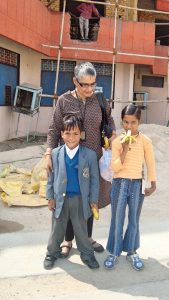
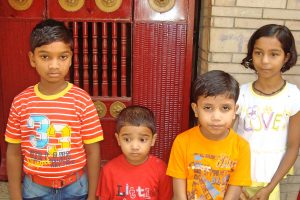

by anouradha bakshi | Mar 14, 2017 | Anou's Blog, Uncategorized
(Posting a series of success stories from the compilation The Project Why Stories 2000-2016)

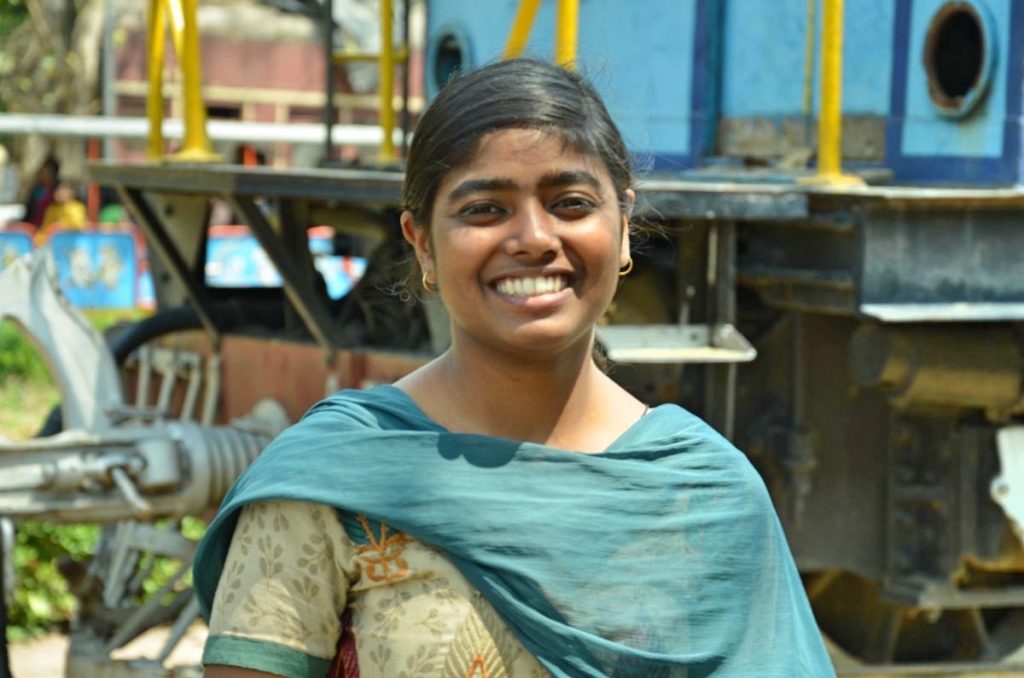
project why
Anita’s relationship with Project WHY started in 2002, when she started studying as a young girl studying in Class 3. Her father comes from Bihar and moved to Delhi in the late 1980s to look for education. Due, however, to financial problems, he was forced to start working at the nearby factory at an early age and settled in the Giri Nagar area.
In 2004, with Anita in Class 6, her father, the family’s sole earner, was told that there was no work in the factory and told to take a two month ‘break.’ Whilst her mother had previously devoted her life to running the house, she was forced to begin running a stitching and embroidery service from home. In an effort not to make her family suffer, Anita’s mother combined this income with her life savings to support their lifestyle.
Anita is a glowing example of the opportunities that Project WHY can create. She attended the centre in Girin Nagar until Class 12, and recorded consistent scores of 75-80% throughout her school career. As one of our brightest students, she secured admission to the prestigious Delhi University to do her B-Com in 2012.
Anita returned to us after graduating, wishing to provide the same opportunities to similarly underprivileged children. Her parents were supportive, indeed they knew she was safe with us and did not want her working anywhere else. As one of our oldest and most successful students, we were happy to taker her on as a primary teacher. She then went on to teach some of our brightest secondary students.
In 2015, she came to us with the news that she would have to leave the job, as her parents had found a boy in the village and wished for her to get married. We had no choice but to accept this. Yet, four months later, Anita returned and asked to resume her old post, which we were happy to give her. The boy’s family had demanded a large amount of money as ‘dowry,’ claiming her to be dark in skin, and apparently not sufficiently pretty. Yet Anita, as a product of Project Why, had learned to speak for her rights. She knows her self-worth, beauty and value to society and refused to get married under these conditions. She therefore spoke herself to the family to reject the boy and the forced marriage.
Dowry or Dahej is the payment in cash and/or in kind by the bride’s family to the bridegroom’s family along with the giving away of the bride (called Kanyadaan) in Indian marriage. It runs across all classes and castes. Although Dowry was legally prohibited in 1961, it continues to be prevalent and highly institutionalised. The groom often demands a dowry consisting of a large sum of money, vehicle, house, furniture, and electronics. The dowry system puts great financial burden on the bride’s family
At Project WHY, we pride ourselves in discussing prevalent social issues such as caste, dowry, violence against women and sexual abuse. We believe that we have made our resource persons fully aware of their rights and responsibilities. Anita, at that moment, stood up for her rights and refused to get married on those terms and conditions. “I am as good as any girl on this planet,” she voiced.
Today, Anita is back teaching and continues to value education above all else. Together with her mother, she is funding her brother’s B-Tech from IP University, at a cost of INR 60,000 per year, striving to give him the same opportunities in life that she had. Concurrent to her work as a Secondary teacher, Anita is now pursuing her M-Com. She wants to apply for a Government job, from which she feels she can have an impact on an even wider scale. Yet, always thankful of her roots, she will never stop supporting Project WHY, both through donation and through education.
